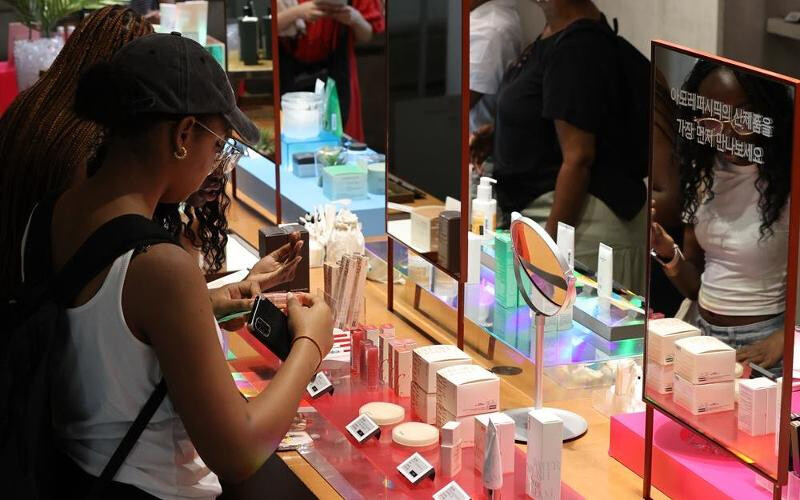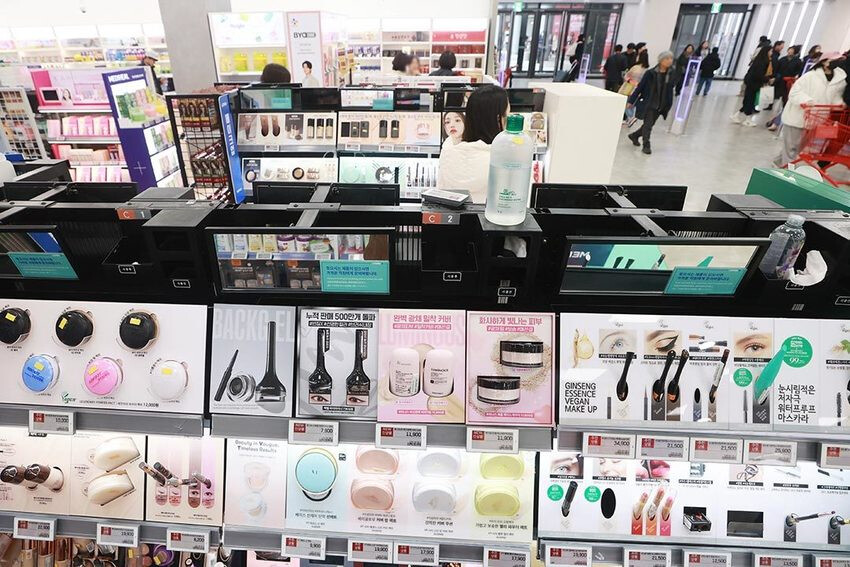
SEOUL, SOUTH KOREA - Once a localized affair confined to dressing tables, South Korean beauty (K-beauty) has blossomed into a global phenomenon, riding the crest of the Korean Wave (Hallyu) to unprecedented heights. This transformation, fueled by relentless innovation and culturally resonant products, has positioned South Korea as a formidable player in the international cosmetics arena. However, as the industry navigates a post-pandemic landscape marked by evolving consumer preferences, intensifying competition, and geopolitical shifts, K-beauty stands at a critical juncture, requiring strategic recalibration to ensure enduring growth.
The meteoric rise of K-beauty is a testament to its adaptability and ingenuity. The late 20th century saw domestic players rise to the challenge posed by international brands entering the South Korean market, igniting a culture of innovation. This culminated in the 21st century with the debut of groundbreaking products like BB creams, cushion compacts, and sheet masks, which not only offered novel functionalities but also captured the imagination of global consumers seeking unique and effective beauty solutions. Data from the Korea International Trade Association (KITA) underscores this success, revealing record-breaking cosmetics exports of approximately $10 billion in 2023. This surge is intrinsically linked to the global proliferation of Korean cultural content, with K-beauty transcending mere product status to become an emblem of South Korea's cultural allure. The beauty regimens of K-pop idols and K-drama stars have become aspirational for millions worldwide, amplified by the pervasive influence of social media platforms like X, where discussions and endorsements of K-beauty products garner significant traction, particularly in Southeast Asia and North America.
Despite this remarkable trajectory, K-beauty now faces a confluence of new challenges. The receding pandemic has spurred a resurgence in demand for color cosmetics, necessitating a shift in product focus. Simultaneously, a growing global consciousness regarding environmental and ethical considerations has propelled clean and vegan beauty to the forefront of consumer priorities. A recent report by Euromonitor forecasts the global vegan cosmetics market to reach an estimated $23 billion in 2024, compelling K-beauty brands to embrace sustainable practices. Furthermore, the once-lucrative Chinese market, which accounted for a substantial portion of K-beauty exports (approximately 40% in 2022), is presenting a more complex landscape. The rapid ascent of domestic Chinese beauty brands, coupled with intricate geopolitical dynamics, has led to a deceleration in K-beauty's growth within this key market, demanding a diversification of global outreach.

To secure a sustainable and competitive future on the global stage, the K-beauty industry must strategically address these evolving dynamics. Several key strategies emerge as crucial for navigating this new era:
Deepening Cultural Integration through Storytelling: Moving beyond mere product efficacy, K-beauty brands must weave compelling narratives that resonate with South Korea's rich cultural heritage. Incorporating traditional Korean ingredients, drawing inspiration from historical beauty practices (such as those of the Joseon Dynasty), and aligning products with the broader appeal of K-culture can create a unique selling proposition. The success of Amorepacific's 'Sulwhasoo' in Western markets exemplifies this, where its embrace of traditional Korean aesthetics has garnered significant acclaim.
Synergizing Technological Innovation with Sustainability: K-beauty's reputation for cutting-edge innovation must be coupled with a strong commitment to sustainability. This includes leveraging AI for personalized skin diagnostics and customized product formulations, as demonstrated by LG Household & Health Care's 'CNP Rx' line. Concurrently, adopting eco-friendly packaging solutions, ensuring cruelty-free practices, and prioritizing ethically sourced ingredients are paramount. McKinsey's projections indicate that sustainability-conscious consumers will dominate the beauty market by 2030, making this a non-negotiable aspect of future success.
Diversifying Global Markets and Implementing Localization Strategies: Over-reliance on the Chinese market necessitates a strategic pivot towards market diversification. North America, Europe, the Middle East, and emerging markets offer significant growth potential. Tailoring products to the specific skin types, beauty preferences, and cultural nuances of each region is crucial. Nature Republic's success in Southeast Asia with lightweight formulations adapted to the tropical climate serves as a compelling example of successful localization. This may also involve navigating regulatory landscapes and obtaining relevant certifications, such as halal certification for the Middle Eastern market.
Elevating Consumer Engagement through Digital Transformation: Embracing digital platforms is no longer optional but essential for fostering deeper consumer engagement. Utilizing social media for targeted marketing, creating immersive experiences through metaverse platforms, and employing augmented reality (AR) for virtual try-ons can enhance the customer journey. Live commerce and AI-powered skin analysis tools can further personalize the consumer experience, as seen with LOHB's AR makeup simulation.
Fortifying Brand Trust through Unwavering Quality and Transparency: Maintaining the global trust K-beauty has cultivated requires stringent quality control measures and transparent ingredient disclosure. Addressing the persistent issue of counterfeit products through innovative solutions like blockchain-based authentication systems can safeguard brand integrity. Ethical and responsible production practices are fundamental to preserving consumer confidence and long-term brand value.
As April 2025 unfolds, the K-beauty industry stands poised for a potential new era of growth. By strategically embracing innovation, sustainability, and a nuanced understanding of diverse global markets, South Korean cosmetics brands can overcome current challenges and continue their remarkable ascent on the world stage. The fusion of cultural richness with technological prowess holds the key to unlocking K-beauty's next chapter of global success.
[Copyright (c) Global Economic Times. All Rights Reserved.]






























